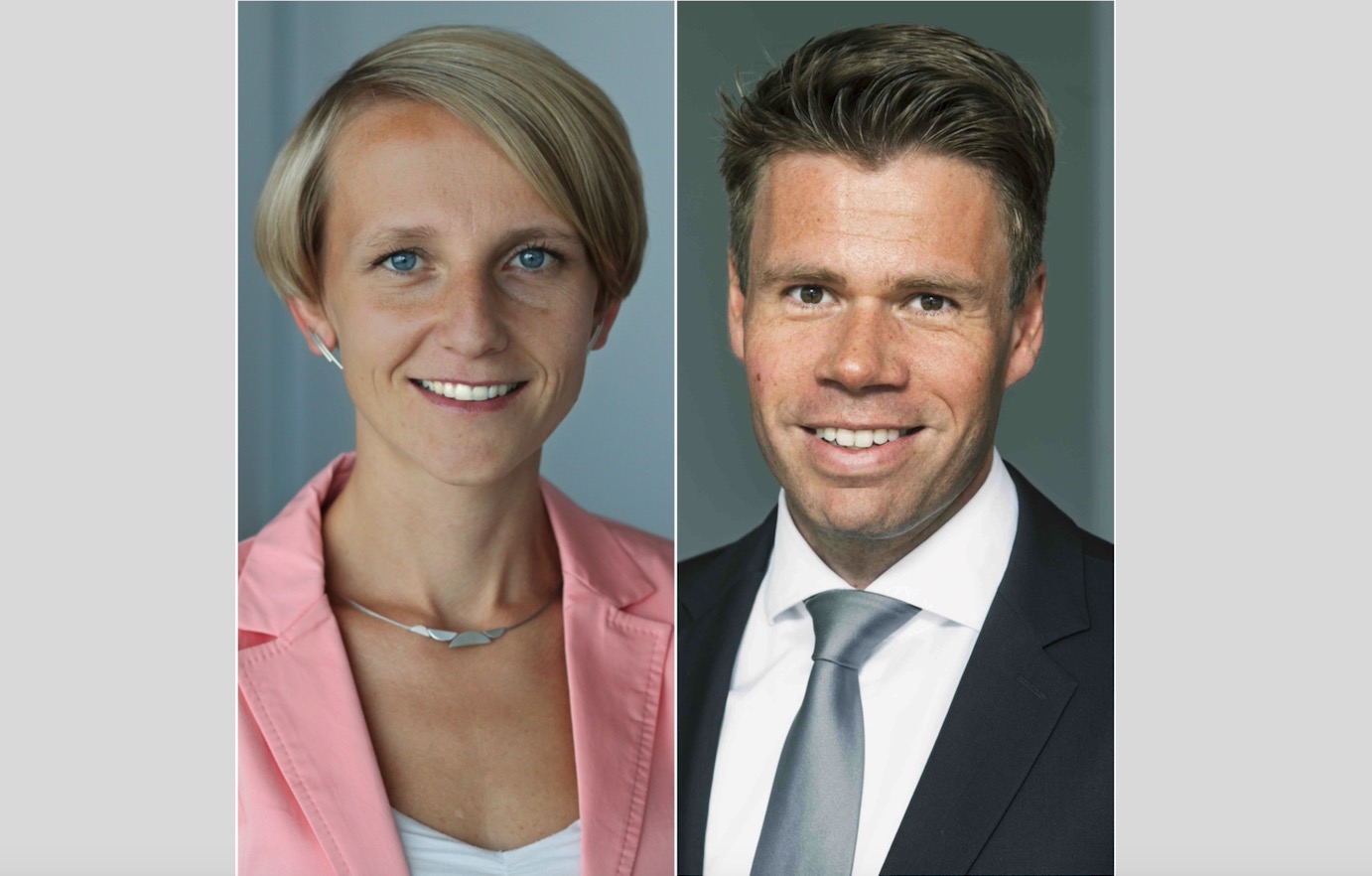The new disruptive technologies are experiencing exponential growth and should be measured in terms of the power of transformation of their technology. It is more than a revolution, something that has to do with the potential to completely change the way societies live and work; a turning point from everything else before it.
For investors who do not want to be left behind in this revolution Pictet offers three thematic strategies. The most recent, Pictet Robotics, was launched in 2015 and invests in companies that provide an automated solution and in all technologies that allow this type of solutions (such as artificial intelligence, sensors, and semiconductors). The strategy has been so successful that it is only available to current investors that are already invested in the fund.
Pictet Security and Pictet Digital strategies had been launched previously, the first strategy invests in companies that develop security solutions to protect the integrity of governments, companies, and individuals. Meanwhile, the second strategy invests in disruptive companies that offer interactive business models through web-based applications and software.
In an interview with Funds Society, Alexandre Mouthon, Senior Client Portfolio Manager at Pictet Asset Management, presented the multiple examples of disruptive technologies that can already among us, and those that are yet to come, such as autonomous vehicles, artificial intelligence, robotics or process automation, as well as the internet of things.
“In the future, all electronic devices will be connected through sensors, being able to be linked effectively through the internet of things. The IoT is a very broad concept in which everything can be interconnected. It will be possible to create and manage infrastructures, cities and smart homes. An example could be effective control over traffic signals or even the vehicles themselves will be connected.”
Is it still a good time to invest in technology?
In a market in which the main technology stocks have experienced a rise above 35%, many investors are asking if it is still a good time to enter this sector or if instead it has risen to stratospheric levels. In that regard, Mouthon explains that he does not believe that tecnology stocks are experiencing a bubble like the one that occurred in 2000, since the price/earnings ratio of the MSCI World Technology index have recently traded at levels close to 18.4 xs.
“The MSCI World Technology Index reached a price/earnings ratio of 44.2x during the course of the internet bubble in the year 2000, then it was deflated by the correction of the market, and since then a lateral evolution has been seen, therefore, based on history, we can say that there is still room in these valuation levels.”
According to Mouthon, since 2010, earnings in the technology sector have been very positive. About 90% of the movement in the index could be explained by a very positive momentum; while the remaining 10% could be explained by a lower expansion of the ratio. “There is a slight expansion in the ratio levels, but with a positive momentum. This means that most of the yield is due to positive returns with very strong fundamentals. “
Technology companies’ balance sheets are solid. Especially when comparing Amazon’s, Ebay’s and Priceline’s December 1999 ratios with those obtained in September of 2017.
“At the end of 1999, Amazon’s enterprise value-sales (EV/S) ratio was 9.8 xs. While it currently stands at about 2.2x times. These companies are now generating much greater earnings, with much more cash. They are much more profitable than 17 years ago. The vast majority have much stronger balance sheets than in the year 2000. This does not mean that if companies were examined on a one-by-one basis, we wouldn’t find that some of them are not properly valued.”
Pictet manages between 40 and 70 stocks in its strategies, having the opportunity to diversify and arbitrate between those companies with the highest valuation and those that still maintain attractive levels of valuation.”It can be managed very effectively. At present, ratios in the portfolio are in line with or below the global equity market. Although the valuations are attractive, it is possible that there is a correction in the market. It’s something that we’ve been expecting for months, but that has not happened yet. It’s possible that it will happen shortly, but it will not be a total reversion of the market”.
The investment universe
The strategies are agnostic with respect to the index. To determine the investment universe of each of the strategies, the management team determines the thematic purity of these companies. In this way, the team seeks that at least 20% of the sales of the companies in which it invests a certain strategy has its origin in the theme of the fund. For example, in the Pictet Digital strategy, at least 20% of the sales of the companies in which the fund invests come from the internet or from a web-based activity.
“In the Digital strategy we are investing fundamentally in internet or software companies. Of course, the FANG, Facebook, Amazon, Netflix and Google shares, or their oriental versions, BAT, Baidu, Alibaba or Tencent, are part of the universe in which it is invested, and so are many of the internet or software participants such as Medidata, Athenal Health, and Zendesk. We are global investors by definition, as long as we find companies that dedicate 20% of their sales to internet services and software, whether in the United States, Europe or Asia, they may potentially qualify to be included in the strategy. Naturally, there is a bias towards the United States, due to the natural leadership of its companies in the Internet sector “.
Likewise, in the Pictet Security strategy, 20% of sales come from activity in cyber security, security in transportation, security in food processing companies, and in the Pictet Robotics strategy, these come from companies dedicated to automation of processes and artificial intelligence.
The most disruptive tendencies
Every minute, 500 hours of YouTube videos are uploaded to the internet; 3.3 million comments are posted on Facebook; 29 million messages are exchanged through WhatsApp, and 3.8 million searches are made on Google. Access to the Internet from any device is, according to a study carried out by the McKinsey Global Institute, the most disruptive technology of the coming years. This report points out 12 technologies that will completely change the current way of living and working. Specifically, six of them are expected to have a strong economic impact: automation and the introduction of robotics, mobile internet, the cloud, the internet of things and autonomous vehicles. “What we have tried is to establish a map with our strategies, integrating these six important disruptive technologies, to which we have added Fintech, which is also expected to change the financial industry and how we currently know it. This mapping is helping investors to realize how our three-disruptive technology fund are complementary in covering these 7 trends among the technology space and the coverage, through the 3 strategies is almost perfect. These seven technologies should benefit from a high growth environment, so they should grow in excess of the global GDP growth, and above of global spending on information technologies. These technologies are tending to grow exponentially and they interact with each other. The artificial intelligence market can be very significant, from 5 to 6 billion at present, and could reach 120 billion in 2025. This will happen when software and hardware applications are combined. You can invest in artificial intelligence through software, investing in the digital strategy, while investing in artificial intelligence through the hardware side is an exposure to robotics. Therefore, artificial intelligence is present in the two strategies.”
The effect of technology on employment
Both artificial intelligence and robotics will have a strong impact on the economy. In general, we talk about the negative effect that technology will have on the labor market, but we underestimate how these new technologies will open the door to new types of jobs that are not yet known.
“As in the internet revolution in the year 2000, when nobody expected that companies like Google could employ so many people, nobody has expected the emergence of companies like Salesforce or Zendesk nowdays, or the large number of companies that are benefiting from the internet revolution. Very likely, the same will happen with the robot revolution or the artificial intelligence revolution, where new jobs will be created from the digital revolution. The main issue is that artificial intelligence and robotics not only affect one sector of the economy, but they are affecting all sectors of the economy at the same time. It is a revolution that moves at a great speed and its growth is exponential. At some point, we will begin to see certain regulations coming into force that will try to slow down the adoption pace of automatic or robotic solutions, giving more time to the workforce to adapt and probably to learn new jobs,” concludes Mouthon.






